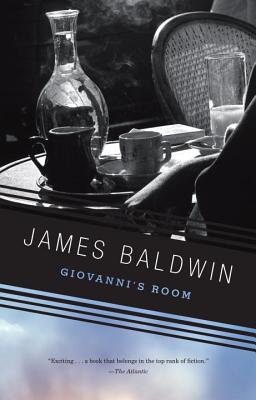APS TOGETHER
Day 1
Part 1, Ch. 1, pg. 3-13 (up to "to be the son of such a mother")
September 17, 2020 by Carl Phillips
The opening paragraph is a perfect example of Baldwin’s gift for compression, his ability to say a great deal in a brief space, and also to suggest something about the trajectory of the novel’s sensibility itself. The first three sentences are dominated by the I. The next two sentences attach the I to an image: a reflection, an arrow, blond hair, a face. All of these then get replaced by the speaker’s ancestors. So there’s already transformation going on, and I’d say this book is very much about transformation – how we transform those whom we encounter, and how they transform us, for better AND worse….Sticking with this paragraph, notice the analogy: speaker is to arrow as speaker’s ancestors are to conquest – conquest as an arrow of destruction across Europe, then the sea, until arriving at the Americas. Baldwin’s specification that the speaker is blond puts this into particular, racial context. All of this, while someone has a drink and looks out the window!
“for nothing is more unbearable, once one has it, than freedom. I suppose this is why I asked her to marry me: to give myself something to be moored to…But people can’t, unhappily, invent their mooring posts…Life gives these and also takes them away and the great difficulty is to say Yes to life.” Interesting how Baldwin sees freedom and stability as opposites. The human impulse is toward being attached to someone – moored – so as not to be adrift. But we also have an impulse toward freedom – Hella has enjoyed a life of “drinking rather too fast, and laughing, and watching the men;” the speaker sees his relationship with Hella – the nights in bed, in particular – as a way to detach from past and present, a way to only have to take “the most mechanical responsibility” for his actions. He blames their behavior on being in a foreign place – Paris – but isn’t mere human restlessness what’s really at work here? Maybe a little human selfishness, too? “I am too various to be trusted.”
With a few strokes, Baldwin contextualizes the narrative in terms of race and class. We now know that the narrator is white and from money, and that’s he’s judgmental of those who aren’t like himself, even as he’s drawn to those who aren’t like him, as toward “the black opening of a cavern,” as he describes Joey’s body…Meanwhile, it is worth noting that the speaker, who compared himself to an arrow in the very first paragraph of the novel, has had a life that took him from Seattle to Manhattan to Brooklyn, then back to Manhattan, before setting off to Paris. He’s like an arrow that can’t come to rest – and his moral compass is just as erratic. But I wonder how much of this is intentional, and how much has to do with his suppressing his sexual self? Is sexual clarity required, for something like moral stability to come about? But isn’t life, according to Baldwin, opposed to stability? What, then?
“We lived in Brooklyn too, in those days, but in a better neighborhood than Joey’s.”
”You slob. You got bedbugs?”
“Joey’s body was brown…”
